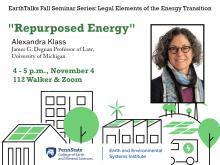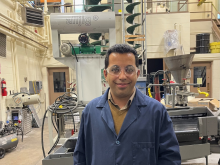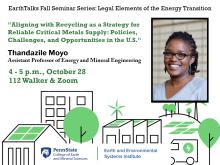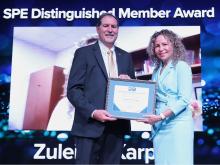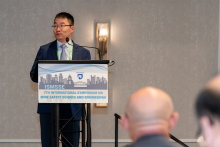The United States will need to make dramatic advances to increase its technical- and skilled-labor workforce to power its green energy future and to become less reliant on foreign nations for securing materials used in both everyday devices and critical national security applications. According to the United States Geological Survey, about 80% of these materials are imported from China.
That was the message Barbara Arnold, professor of practice in mining engineering in the Penn State College of Earth and Mineral Sciences, told a U.S. congressional committee in September.



